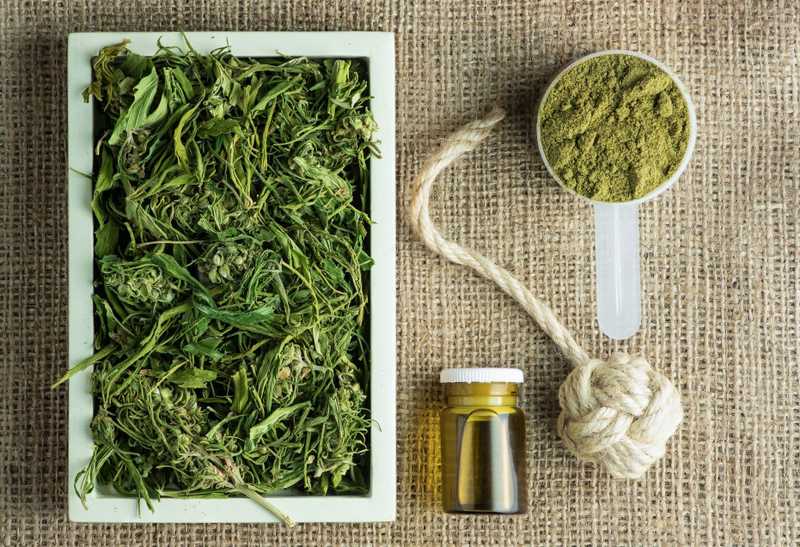As legalization approached last year, the talk about the potential health benefits of cannabis was accompanied by a nod and wink. After all, many believed that the real story was the recreational aspect of marijuana and the psychoactive effects of tetrahydrocannabinol (THC).
Well, it may be time to flip the script. The high-inducing cannabinoid’s, quieter, more studious sibling, CBD (cannabidiol) may be the true star. Or at least a co-star, as it becomes prized for its health benefits without the mind-altering effects that THC can produce.
It’s not strictly correct to say that CBD doesn’t have psychoactive properties, because it does have an effect on the brain as it helps consumers deal with conditions such as depression and anxiety. But it doesn’t impair mental functioning as THC sometimes can.
RELATED: WHAT IS CBD & HOW CAN IT HELP ME?
But with the growing demand for this cannabinoid that people say helps with everything from joint pain to insomnia, where can the Canadian market access it? Enter the hemp plant, a relative of the cannabis plant, that’s rich in CBD.
Canadian Cannabis Producers Caught Off-Guard by CBD Demands
While many of the purported benefits have yet to be fully proven through rigourous scientific research, there’s no denying the huge and growing demand for CBD products. And because of CBD’s association with THC, it’s covered by Health Canada regulations and can only be offered by licensed producers (LPs).
That said, LPs have been caught off-guard by the demand for CBD, with cannabis store shelves bare where selections of CBD products should be available.
“When recreational legalization was going to happen, I think many of the licensed producers focused too much on the THC side of the sector. Now we’re seeing there’s actually a huge demand for CBD,” admits Khurram Malik, CEO of Biome Grow.
Canadian Hemp Growers Want to Come to the Rescue
So how can the CBD market expand quickly? Enter Canada’s hemp industry. Product makers can extract CBD more cost-effectively from hemp than from the marijuana plant. And Canada happens to be the world’s largest producer of hemp (after China), growing about 138,000 acres of the plant in 2017. This is compared to 26,000 acres in the United States.
“[Hemp] will be the next canola,” says Danny Fieldberg, who grows industrial hemp on his certified organic farm outside of Medicine Hat, Alberta. “Once it gets going, there will be no stopping it.”
Bred by researchers in the 1970s, canola has since become a billion-dollar industry for the country. Now our hemp farmers, especially in Saskatchewan and Alberta, are seeing another crop with star potential.
What has stopped its star from rising in the past is the fact that, for years, farmers with licences to grow industrial hemp were only allowed to harvest the seeds and stems of the plants, leaving the parts with the CBD—the leaves and buds—languishing in the fields.
With cannabis now legal in Canada, people can look to hemp CBD to fill the growing demand for CBD. But the catch is, you have to be an LP. So, hemp farmers currently must sell their crop, in Canada at least, to LPs for CBD extraction, and they in turn must sell to the authorized retailers in the provinces and territories.
Pressures to Produce Hemp CBD Mount
The move to cultivate a homegrown hemp CBD industry has intensified lately under twin pressures. The first is the passing of the Farm Bill in the United States last December. At a federal level, this legalized industrial hemp there.
While Canada far outstrips the U.S. in hemp growth, it’s been hampered by its lack of experience in cultivating plants with high-CBD content, which U.S. growers have already done quite successfully.
The other pressure to produce CBD comes from the upcoming legalization of cannabis edibles in Canada this October. With the surging demand for CBD, CBD-infused foods and drinks are a natural fit.
In response, Canadian LPs and hemp farmers have been making some strategic moves and alliances. For example, last year, Canopy Growth Corp. set up a hemp-cultivation facility in Saskatchewan. It also acquired assets and intellectual property—including a hemp farm—from a company called Green Hemp Industries.
And earlier this year, Canopy Growth announced that it would set up a $150 million hemp facility in New York state, extracting CBD that would be sold in the U.S.
In Medicine Hat, Aurora Sun’s cannabis production facility, which is set to become the city’s largest private employer when it goes into full operation next year, is attempting to lure investors to launch an industrial-hemp-processing facility there, too.
Seeking Canadian Regulatory Change for CBD
To meet the huge demand for CBD, there’s a growing chorus of industry players asking for regulatory changes, expanding the definition of who’s allowed to extract CBD from hemp and perhaps regulating CBD outside of the Cannabis Act altogether.
“For hemp farmers, I know a big question to them is, ‘Why do we have to go through the Cannabis Act for extracting CBD from hemp, why can’t we have a separate hemp processing stream?’” says Ivan Ross-Vrana, national director at Hill & Knowlton Strategies’ cannabis practice, in a Financial Post article.
Adds Ted Haney, executive director of the Canadian Hemp Trade Alliance: “CBD is not addictive, it is not habituating and does not get you high. So why is the federal government regulating it like it’s a psychoactive drug?”
Photo credit: f2.8/Shutterstock.com
